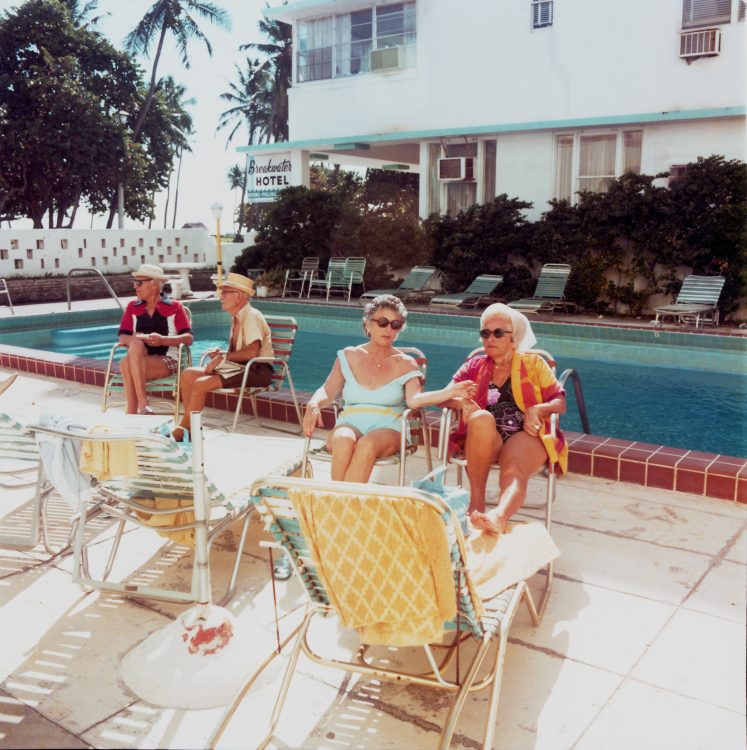
The Last Resort explores 1970s Miami Beach, when it was a mecca for Jewish retirees, through the photographs of Andy Sweet.
Before becoming the Miami Beach we all know, where Spring Breakers lost their inhibitions and where gay men found paradise in the 90s, the town was a mecca for senior citizens, predominantly Jewish, who called the small island home.
As one of the interviewees in documentary The Last Resort, which tracks the growth and decline of the population in the 70s, says, “it was a colorful town, full of colorful people, and it was all fun.”
Many of the citizens of Miami Beach at the time were once seasonal visitors from New York, who eventually fell in love with the warm weather, beautiful beaches, and the fact that it was a town filled with people like them. People with similar struggles and life experience could commiserate and feel safe
The Last Resort, directed by Dennis Scholl and Kareem Tabsch, explores Miami Beach's transition from a plantation to the South's Atlantic City before eventually becoming a haven in the 1970s for these Jewish retirees—many of whom were Holocaust survivors.
The lives of the citizens were captured in vivid color by Andy Sweet and Gary Monroe, a couple of young and ambitious photographers who embarked on a project titled, “The Miami Beach Photographic Project,” which would go on to last 10 years.

What makes The Last Resort so successful in translating the energy Miami Beach in the 70s is truly in Andy Sweet's magnificent work. The vibrant colors and framing of the subjects communicate so much life, especially juxtaposed against Monroe's black and white photos.
The movie is made up of these images, which on their own are interesting enough to hold your attention for the lean 70-minute running time.
Through interviews with Jewish historians, Certain Women filmmaker and Miami Beach resident Kelly Reinhardt, Andy Sweet's sister, and Gary Monroe, we piece together the rise and fall of Miami Beach as a sanctuary for these Jewish retirees as changing demographics pushed them out of the area—the movie explores this with heavy
The last part of the movie deals with Andy Sweet's life, his eventual murder as a result of those changing demographics, and its effect on Monroe. I think this focus feels disparate from the beginning of the film. Both halves end up working, but it also feels as if we could have gotten more from each storyline.
Still, The Last Resort is an enjoyable walk through a fascinating time in history from the perspective of an incredibly talented photographer. It makes his fate all the more tragic.
The Last Resort will be released at Quad Cinemas and the Marlene Meyerson JCC in New York City on December 21st.
Karl's rating:

Hey, I'm Karl, founder and film critic at Smash Cut. I started Smash Cut in 2014 to share my love of movies and give a perspective I haven't yet seen represented. I'm also an editor at The New York Times, a Rotten Tomatoes-approved critic, and a member of the Online Film Critics Society.